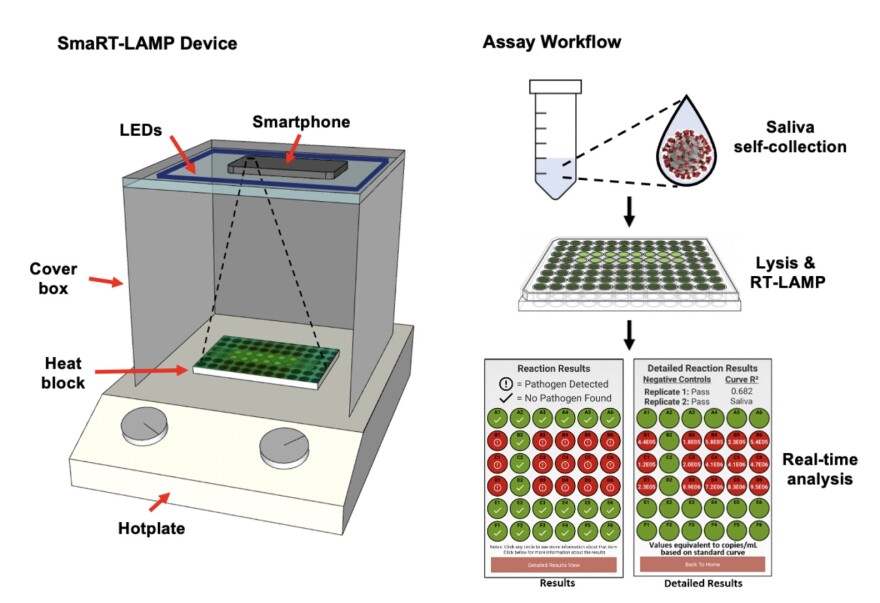People around the world may soon be able to use their smartphones to test themselves for COVID-19 and flu thanks to a group of researchers at UC Santa Barbara.
The app is paired with a laboratory kit that uses the smartphone’s camera to measure a chemical reaction with saliva.
Douglas Heithoff is a PHD researcher at UCSB who helped develop the testing system.
“So it’s basically building a very low-tech, inexpensive test kit that has a hot plate, a cardboard box and then LED lights,” Heithoff said.
He said the reactions rest on top of the hot plate underneath the box and the lights. With the app operating, the smartphone sits on top of the box and takes photos of the reaction over time.
“The chemical reaction is fluorescent so it’s giving out a fluorescent signal that’s proportional to the amount of virus that’s present,” Heithoff said.
He said the app can determine a diagnosis in just 25 minutes. After the kit is set-up, Heithoff said the tests will cost just about seven dollars each.
“We wanted it to have features of being the most rapid, sensitive, affordable and scalable test," Heithoff said. "And we wanted it to be a fraction of the time and cost of current tests.”
Heithoff said the test's efficacy is comparable to a PCR test. He said it’s even more sensitive than a rapid antigen test.
Right now, this is still only being done in a lab. But Heithoff said the home-based kit is under development. He said the plan is for users to be able to have the kit delivered directly to their home.
Heithoff said global accessibility was a huge consideration when developing the kit.
“There're many countries, parts of the world, that don’t have the clinical resources that we have in this country," Heithoff said. "So we wanted to make a kit that would be as useful out in the field as it would be in a laboratory or in the home.”
Heithoff said this testing system will also help with preparing for other pandemics in the future. He said it’s adaptable to any infectious agent, in the event of other testing needs.




